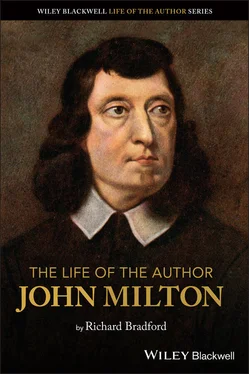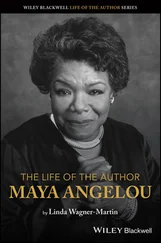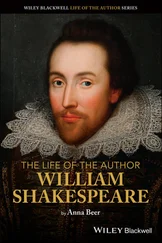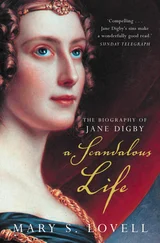8 Begin Reading
9 Abbreviations and Referencing
10 Bibliography
11 Index
12 End User License Agreement
1 i
2 ii
3 iii
4 iv
5 v
6 vi
7 vii
8 viii
9 ix
10 x
11 1
12 2
13 3
14 4
15 5
16 6
17 7
18 8
19 9
20 10
21 11
22 12
23 13
24 14
25 15
26 16
27 17
28 18
29 19
30 20
31 21
32 22
33 23
34 24
35 25
36 26
37 27
38 28
39 29
40 30
41 31
42 32
43 33
44 34
45 35
46 36
47 37
48 38
49 39
50 40
51 41
52 42
53 43
54 44
55 45
56 46
57 47
58 48
59 49
60 50
61 51
62 52
63 53
64 54
65 55
66 56
67 57
68 58
69 59
70 60
71 61
72 62
73 63
74 64
75 65
76 66
77 67
78 68
79 69
80 70
81 71
82 72
83 73
84 74
85 75
86 76
87 77
88 78
89 79
90 80
91 81
92 82
93 83
94 84
95 85
96 86
97 87
98 88
99 89
100 90
101 91
102 92
103 93
104 94
105 95
106 96
107 97
108 98
109 99
110 100
111 101
112 102
113 103
114 104
115 105
116 106
117 107
118 108
119 109
120 110
121 111
122 112
123 113
124 114
125 115
126 116
127 117
128 118
129 119
130 120
131 121
132 122
133 123
134 124
135 125
136 126
137 127
138 128
139 129
140 130
141 131
142 132
143 133
144 134
145 135
146 136
147 137
148 138
149 139
150 140
151 141
152 142
153 143
154 144
155 145
156 146
157 147
158 148
159 149
160 150
161 151
162 152
163 153
164 154
165 155
166 156
167 157
168 158
169 159
170 160
171 161
172 162
173 163
174 164
175 165
176 166
177 167
178 168
179 169
180 170
181 171
182 172
183 173
184 174
185 175
186 176
187 177
188 178
189 179
190 180
191 181
192 182
193 183
194 184
195 185
196 186
197 187
198 188
199 189
200 190
201 191
202 192
203 193
204 194
205 195
206 196
207 197
208 198
209 199
210 200
211 201
212 202
213 203
214 204
215 205
216 206
217 207
218 208
219 209
220 210
221 211
222 212
223 213
224 214
225 215
226 216
227 217
Thanks are due to Lisa Verner of Ulster University and to Harry Lapin, a Milton enthusiast. Dr Amy Burns, also of Ulster, has been of great help. I am grateful, too, to Nicole Allen and Catriona King of Wiley Blackwell for their patience and assistance. Nicole has guided the series from its conception as an idea to its birth as books in print.
Milton is unique for two reasons.
He was the most politically involved literary writer in the history of English literature. His closest competitor was George Orwell, who spent much of his time during the 1940s producing outspoken journalism on the progress of the war, on the competing evils of fascism and communism, and on the future of Britain after 1945. His two best-known novels, Animal Farm and Nineteen Eighty-Four were taken by most as reflections of his opinions and fears regarding the Soviet Union. But while he favoured the objectives of the post-war Labour government he was never its unreserved advocate or official spokesman. Milton was effectively a propagandist and a civil servant for a regime, run by Cromwell, that created across Europe gasps of astonishment and often revulsion. The overthrow and execution of Charles I was the prototype for what would happen in France at the end of the eighteenth century and Russia in the early years of the twentieth. The question of how Milton’s involvement in this moment of political trauma affected, even informed, his poems, notably Paradise Lost , has troubled commentators for more than three centuries and it is here that Orwell shifts back into focus. As a journalist during the war years and up to his death in 1950 he was unerringly transparent regarding his perceptions of ideological naivete and political injustice and intolerance – he never allowed any affiliation to a particular party or cause to cloud his sense of what was right or wrong – and while his two dystopian novels are to a large extent a depiction of how idealism could lead to totalitarianism, specifically in the Stalinist regime, each also causes us to wonder if there is something flawed in all humans, irrespective of their political beliefs. Equally, Paradise Lost , while ostensibly based on the Old Testament account of the origins of the human condition, has caused dozens of critics and biographers to wonder if Milton was carrying into it his feelings about more recent events, about a Protestant republican ‘Paradise’ destined to failure just as assuredly as the one occupied by Adam and Eve. No other writers have been so closely attached to two different vocations, political writing and literature, and none therefore has epitomised the differences between and the defining particulars of each.
Next, Milton is the first author in English about whom we know so much as an individual. Word-for-word his political tracts, most written when he was an employee of the Cromwellian government, outnumber his literary works enormously. Bringing together empirical evidence on where he lived, to whom he was married and so on, along with the impression left by his ideas and uncertainties in his verse and political prose, we have the first fully delineated portrait of an author in English writing. We know hardly anything for certain about Milton’s esteemed predecessor, Shakespeare, and thus we are left to surmise a great deal from his writings. Milton is therefore a magnet for biographers and biographical critics, particularly those who feel that his involvement in a revolution, social, political and religious, accords with their own sympathies.
His biographers tend to treat him as barristers would deal with a client in court, never quite distorting the truth but claiming the relevant parts of it for their case. More interesting are those who are not, strictly speaking, biographers but rather literary critics who in truth create portraits of Milton based on their readings of his work and more often their partial notion of who he really was – often attempting to disguise or hide their biases.
Hence the two-part structure of this book. The first is my account of how Milton’s life informed his work, and the second follows the history of how commentators and critics have over the past three and a half centuries made him their own, reshaping him according to their contrasting opinions on who he ought to be, and more recently annihilating him as a real individual.
Read the first part, see what you think of him as a man and a writer; then read the second and compare your impressions of him as a living man and writer with the ways in which what we know of him has, over the past three centuries been distorted and manipulated. Feminists, for example, have seen his treatment of Eve as symptomatic of the governing patriarchal ideology of his time and as a projection into his work of his own unsettled relationships with his wives. Marxists have regarded him as the foreseer both of revolution and bourgeois complacency.
Читать дальше












